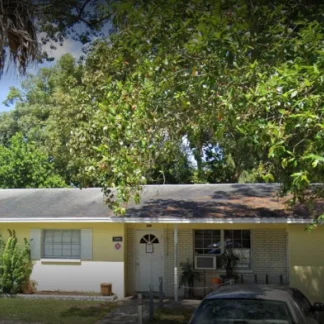Unique Lady's of Character - ULOC
Unique Lady's of Character is a non-profit rehab located in Tampa, Florida. Uniq...
New Beginnings of Tampa is a residential facility that offers treatment for individuals with a Mental Health diagnosis and/or Substance Addiction. New Beginnings of Tampa is located in Tampa, Florida
The mission of New Beginnings of Tampa is to help people that are struggling with addictions and other life challenges, by offering shelter and recovery treatments. The are dedicated to provide their patients with the necessary tools for a successful re-entry into society.
New Beginnings of Tampa understands that integrating back into society is a slow process, so their program works on different therapy levels. In the beginning patients are given jobs inside the facility. Later, they allow patients to work on supervised volunteer programs and events. This helps them to bring their patients into the world of regular world. At higher levels of trust, patients are able to apply for jobs and are taught on managing money and adjusting to a budget
Contact us for more information: (813) 971-6961

Connect with New Beginnings of Tampa by calling their admissions team directly.
(813) 971-6961 Website Get DirectionsThe Substance Abuse and Mental Health Services Administration (SAMHSA) is a branch of the U.S. Department of Health and Human Services. Established in 1992 by congress, SAMHSA's mission is to reduce the impact of substance abuse and mental illness on American's communities.
SAMHSA Listed: Yes
Experiential therapy is a form of therapy in which clients are encouraged to surface and work through subconscious issues by engaging in real-time experiences. Experiential therapy departs from traditional talk therapy by involving the body, and having clients engage in activities, movements, and physical and emotional expression. This can involve role-play or using props (which can include other people). Experiential therapy can help people process trauma, memories, and emotion quickly, deeply, and in a lasting fashion, leading to substantial and impactful healing.
Group therapy is any therapeutic work that happens in a group (not one-on-one). There are a number of different group therapy modalities, including support groups, experiential therapy, psycho-education, and more. Group therapy involves treatment as well as processing interaction between group members.
In individual therapy, a patient meets one-on-one with a trained psychologist or counselor. Therapy is a pivotal part of effective substance abuse treatment, as it often covers root causes of addiction, including challenges faced by the patient in their social, family, and work/school life.
Life skills trainings involve all the skills a person must have in order to function successfully in the world. These include time management, career guidance, money management, and effective communication. Truly successful addiction recovery is based on the ability to not only live substance-free, but to thrive. Life skills teaches the practical necessities of functioning in society, which sets clients up for success in life, and therefore sobriety.
Group therapy is any therapeutic work that happens in a group (not one-on-one). There are a number of different group therapy modalities, including support groups, experiential therapy, psycho-education, and more. Group therapy involves treatment as well as processing interaction between group members.
In individual therapy, a patient meets one-on-one with a trained psychologist or counselor. Therapy is a pivotal part of effective substance abuse treatment, as it often covers root causes of addiction, including challenges faced by the patient in their social, family, and work/school life.
Life skills trainings involve all the skills a person must have in order to function successfully in the world. These include time management, career guidance, money management, and effective communication. Truly successful addiction recovery is based on the ability to not only live substance-free, but to thrive. Life skills teaches the practical necessities of functioning in society, which sets clients up for success in life, and therefore sobriety.
In individual therapy, a patient meets one-on-one with a trained psychologist or counselor. Therapy is a pivotal part of effective substance abuse treatment, as it often covers root causes of addiction, including challenges faced by the patient in their social, family, and work/school life.
Life skills trainings involve all the skills a person must have in order to function successfully in the world. These include time management, career guidance, money management, and effective communication. Truly successful addiction recovery is based on the ability to not only live substance-free, but to thrive. Life skills teaches the practical necessities of functioning in society, which sets clients up for success in life, and therefore sobriety.
Life skills trainings involve all the skills a person must have in order to function successfully in the world. These include time management, career guidance, money management, and effective communication. Truly successful addiction recovery is based on the ability to not only live substance-free, but to thrive. Life skills teaches the practical necessities of functioning in society, which sets clients up for success in life, and therefore sobriety.
Unique Lady's of Character is a non-profit rehab located in Tampa, Florida. Uniq...
Derek Jeter Center at Phoenix House is a private rehab located in Tampa, Florida...
Healthcare Connection of Tampa is a private organization that offers inpatient r...
DACCO Behavioral Health is a private rehab located in Tampa, Florida. DACCO Beha...